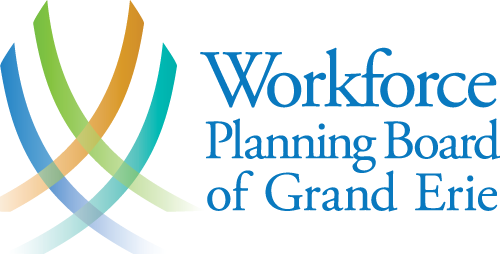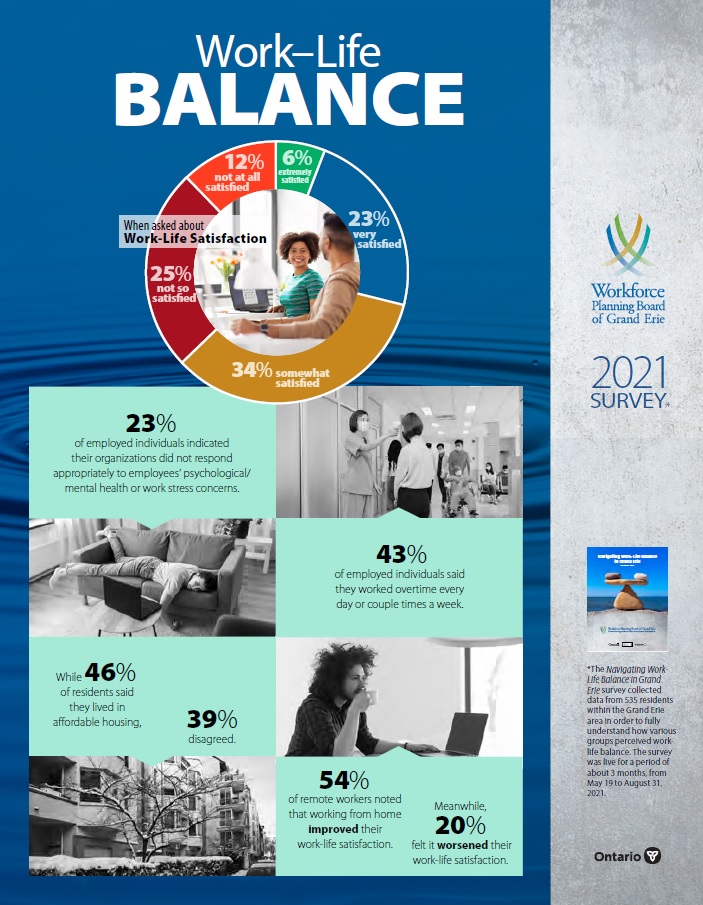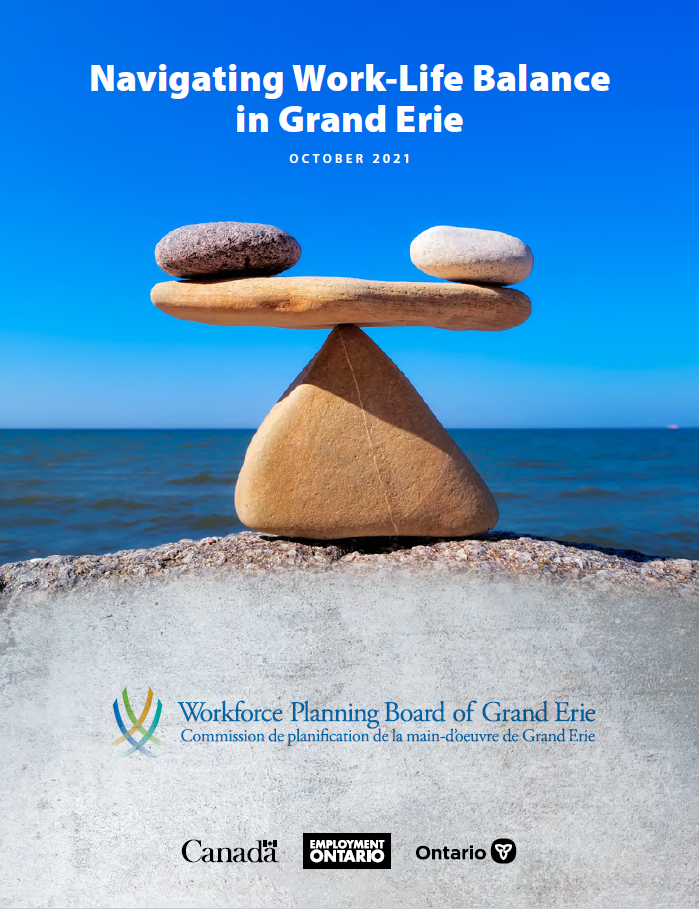Navigating Work-Life Balance in Grand Erie
“An ideal work-life balance for me involves being able to leave work at work so I can enjoy life outside of those obligations.” – Survey respondent
“For me, work-life balance is all about learning that it’s okay to take time for myself.” – Survey respondent
%
People dissatisfied with work-life balance
%
People experiencing burnout
%
People who thought of leaving their jobs
%
People who work daily overtime
Burnout is common among area residents and many are dissatisfied with their current work-life balance.
That is among the key findings from the Navigating Work-Life Balance survey, carried out earlier this year by the Workforce Planning Board of Grand Erie.
The survey heard from 535 residents of Brantford, Six Nations, Mississaugas of the Credit and the counties of Brant, Haldimand and Norfolk.
Overall, 37% of respondents said they were dissatisfied with the balance between their work and personal lives. Another 34% were “somewhat satisfied” and 29% were very satisfied.
Other key findings:
- Burnout: 39% of people – both those working and not working – said they felt burnt out, while 50% said they had felt burned out in the past.
- Thinking of quitting: 53% of employed people thought of leaving their jobs in the last year, with burnout the No. 1 reason.
- Overtime: 16% of people said they worked overtime daily and 27% said they did so a couple times a week.
- Support from employers: One quarter (23%) of employees said their employer did not respond appropriately to their work stress or mental health concerns.
The purpose of the survey was to better understand the experiences and challenges of residents, most of whom regularly juggle work, caregiving and family responsibilities.
Timely survey
The study was timely as the COVID-19 pandemic disrupted people’s jobs. Children were also home from school and there were limits placed on social interactions.
“There’s a strong case for improving work-life balance, since people with a healthy balance are more likely to be productive employees, caregivers and community members,” said Danette Dalton, the WPBGE’s executive director. “With today’s labour shortage, companies have even more incentive to invest in their current employees and keep them happy and satisfied.”
The study identifies strategies that employers, government and community agencies can use to improve work-life balance for people. There are also ideas for people to improve their own lives.
Read the Survey Highlights and the Full Survey Report.





